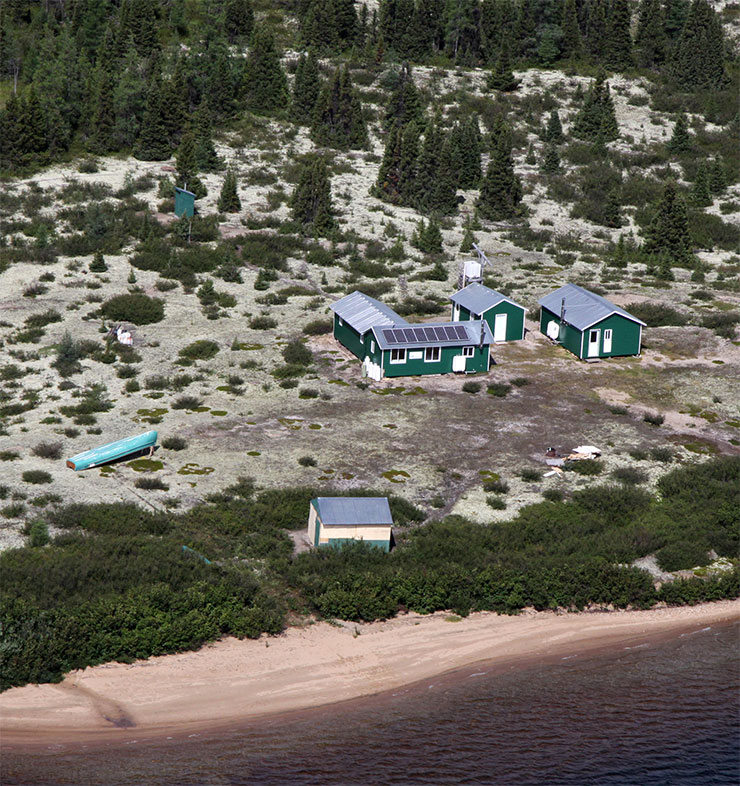
Wiyâshâkimî Lake (Clearwater Lake) Station (CEN)

Lake Wiyâshâkimî (formerly Lac à l'Eau Claire) is the second largest natural lake in Quebec (2243 km²). Located at an altitude of 240 m, above the limit reached by the postglacial sea, it is drained by the Rivière à l'Eau Claire (maximum flow 150 m³/s) towards Hudson Bay. The lake includes two juxtaposed circular basins (26 and 36 km in diameter) that were formed by a meteorite impact 290 ± 20 million years ago (Permian). Although the vascular flora of the region is rather poor on granite and gneissic lands, the volcanic breccias of the islands in the western basin (11 islands arranged in a circle) contain 250 vascular species, 15% of which are shoreline specific. The birdlife is abundant. The islands are an enclave of shrub tundra in this region, which is more characterized by forest tundra.
The laboratory is equipped with a stainless steel counter. WHMIS training or its equivalent is required to use the laboratory. No chemical storage is permitted, all products must be returned after use. Prior agreements must be made with Nunvaik Parks (Tursujuq Park) and the Centre for Northern Studies (CEN). Contact the station officials and a permit is required to conduct research and access the station. Consult the document "Scientific Research in Nunavik's National Parks: A Guide for Researchers" published on the Nunavik Parks Research Request page (www.nunavikparks.ca).

